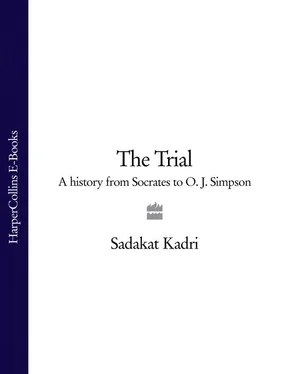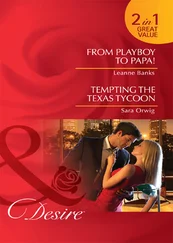As was usual, Raleigh had not seen the indictment before coming into court, and he now heard for the first time that he had supposedly agreed with Cobham to raise rebellion on behalf of Spain’s king and hand James’s crown to a Catholic pretender. That came as little surprise, but Coke then continued, apropos of nothing very much, with lurid accounts of the conspiracies of which the other plotters had been convicted two days before. Raleigh listened in silence for several minutes, before pointing out that their crimes had nothing to do with him. Coke did not deign to reply directly. ‘Like Sampson’s foxes, [the treasons] were joined in the tails though their heads were severed,’ he pronounced, before stitching together several non sequiturs of his own. Treason, he explained to the jury, had its root, bud, blossom, and fruit, and this was treachery so radical that it had not even been put into effect. The others had already been convicted of plotting against ‘the [king] and his cubs’, he pointed out, before swivelling towards Raleigh. ‘But to whom, Sir Walter, did you bear malice? To the royal children?’ As though accosted by a drunkard with a knife, Raleigh’s reply was nervous courtesy itself. ‘Mr. Attorney, I pray you to whom, or to what end speak you all this?…What is the treason of [the others] to me?’
Oozing a vitriol that still hisses from the page, Coke finally homed in on his quarry. ‘I will then come close to you. I will prove you to be the most notorious traitor that ever came to the bar.’ Raleigh replied that if the lawyer could prove anything at all, he would admit not just that he was a traitor but that he was ‘worthy to be crucified with a thousand torments’. ‘Nay, I will prove all,’ growled Coke. ‘Thou art a monster; thou hast an English face, but a Spanish heart.’ He continued with another sustained attack on various betrayals supposedly committed by Lord Cobham, who was awaiting his own trial in a dungeon below the court. ‘What is that to me?’ Raleigh demanded. ‘If my Lord Cobham be a traitor, what is that to me?’ Coke erupted with anger. ‘All that he did was by thy instigation thou viper, for I thou thee, thou traitor!’ All the thouing, a form of address conventionally used for children, servants, and animals, threatened to turn the exchange into a slanging match, but Raleigh’s retaliation remained restrained. ‘You may call me a traitor at your pleasure, yet it becomes not a man of quality and virtue to do so,’ he replied, ‘but I take comfort in it, it is all that you can do.’ Lord Chief Justice Sir John Popham – a massive presence in a blood-red gown – stepped in to separate the men. ‘Mr. Attorney speaks out of the zeal of his duty for the service of the King; and you for your life,’ he told Raleigh, ‘be patient on both sides.’
Any hope of a clean fight was, however, doomed from the start – for it very soon emerged that the combatants did not even agree on the contest’s rules. In particular, they had diametrically opposed ideas about what constituted evidence. When Coke responded to Raleigh’s challenge by declaring that he would turn to his proofs, he read aloud an unsigned statement in which Lord Cobham was said to have confessed, four months earlier, that Raleigh had incited him to serve Spain. Raleigh, after reminding the jurors that he had done more than most to subvert Spanish interests, asked that Cobham make the claim to his face. Every defendant, he argued, had the right to confront his accuser. The law of England, like the Book of Deuteronomy, guaranteed that no one could be convicted of treason unless publicly charged by at least two witnesses.
The claim caused consternation among the judges; and although one reason was that Raleigh was simply wrong under the law of the time, the discombobulation reflected more than disagreement over the technicalities of treason. It was still just a few decades since witnesses had first begun to appear in trials – and the judges thought it preposterous to propose that criminal allegations required testimony at all. ‘I marvel, Sir Walter, that you, being of such experience and wit, should stand on this point,’ said Justice Warburton, ‘for many horse-stealers should escape if they may not be condemned without witnesses.’ When Raleigh insisted that the whole purpose of a trial was to allow a jury to weigh up the prosecution’s evidence, Lord Popham hoisted his bulky frame back into the fray. He had already told the jury that he could personally vouch for the truth of Cobham’s confession, having taken it himself, and his intervention was as predictable as it was decisive. No, he declared abruptly, trials did not require witnesses. A person could be convicted on the strength of confessions and statements that had been recorded before the hearing. ‘I know not, my Lord, how you conceive the law,’ responded Raleigh, ‘but if you affirm it, it must be a law to all posterity.’ ‘Nay, we do not conceive the law,’ boomed Popham. ‘We know the law.’ *
Any doubts that Coke might have had about his case were finally dispelled. He returned to the attack, now reciting from statements made by the men already convicted, in which they repeated rumours, second- and third-hand, about Raleigh’s willingness to betray England. ‘O barbarous!’ exploded Raleigh. ‘Do you bring the words of these hellish spiders against me?…I find not myself touched, scarce named; and the course of proof is strange; if witnesses are to speak by relation to one another, by this means you may have any man’s life in a week; and I may be massacred by mere hearsay.’ He pleaded again for Cobham to be produced in court but Popham held firm, pointing out – plausibly, if unhelpfully – that he might recant and confuse the jury.
As if to taunt Raleigh, Coke then produced a second statement from Cobham in which he apparently claimed that Raleigh had written to tell him that traitors were immune from punishment in the absence of two accusers. When Raleigh vehemently denied writing such a letter, the prosecutor announced that he would, after all, call a live witness. All heads turned – to see an unknown character step forward. The man identified himself as a sailor called Dyer, and told the jurors that someone in Lisbon had once told him that James would never be crowned king of England because Don Raleigh and Don Cobham would slit his throat first. He then drifted away as mysteriously as he had arrived. A flabbergasted Raleigh inquired how the supposed ramblings of an unknown person in Portugal could possibly implicate him. ‘Your treason’, snarled Coke, ‘had wings.’
As the hearing neared its conclusion and Raleigh pleaded with the jury to judge him as they would want to be judged, Coke demanded ‘the last word for the King’. ‘Nay, I will have the last word for my life,’ replied Raleigh. ‘Go to,’ exploded the Attorney-General.’ I will lay thee upon thy back for the confidentest traitor that ever came to the bar!’ Even the judges now sided with Raleigh until Coke sat down and petulantly accused them of encouraging treachery. They relented, like bad parents with a worse child, and begged him to carry on – which he did, at length. His summary of all the statements that everyone had already heard elicited yet another protest, and Coke let loose with one final spray of abuse. Addressing Raleigh to his face, he condemned him as ‘the most vile and execrable traitor that ever lived’, ‘an odious fellow’ whose ‘name is hateful to all the realm of England for thy pride’. As cool as his opponent was incontinent, Raleigh wondered which of them deserved the superlatives. ‘It will go near to prove a measuring cast between you and me, Mr. Attorney.’
The sympathies of the spectators had indeed shifted. One of James’s courtiers later told the king that ‘he would have gone a thousand miles to have seen [Raleigh] hanged’ at the beginning of the trial, but ‘would…have gone a thousand to save his life’ by its end. ‘In half a day’, another observer reported, ‘the mind of all the company was changed from the extremest hate to the greatest pity.’ Coke’s attacks inspired such hostility among bystanders, wrote someone else, that ‘calling hym base trash [they] begann to hyss’ while Coke himself looked ‘to be something daunted’. But the lawyer also had the thick skin of a seasoned showman – and the nous to save the best till last. Like a knife thrower with one final trick, Coke now pulled a scroll from his pocket, and the crowd hushed.
Читать дальше




![Theresa Cheung - The Dream Dictionary from A to Z [Revised edition] - The Ultimate A–Z to Interpret the Secrets of Your Dreams](/books/692092/theresa-cheung-the-dream-dictionary-from-a-to-z-r-thumb.webp)







